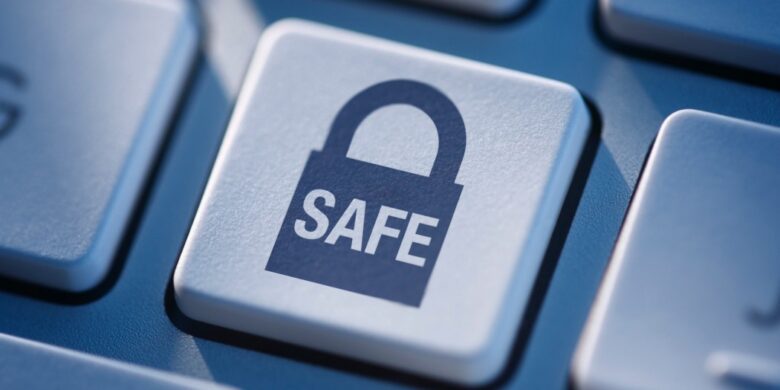These days, most people use the internet daily. Whether we’re shopping online, using social media, or reading the news, we’re constantly connected. But the internet isn’t always a safe place. Cybercriminals, data trackers, and phishing scams are constantly evolving and developing new methods. Many people don’t realize the dangers of online browsing until it’s too late, which can lead to privacy violations, identity theft, or financial loss. Safe browsing is no longer an option; it’s a necessity. Everyone can stay safe online by behaving responsibly, using reliable tools, and staying informed about current risks. Let’s look at some practical and effective strategies to make your daily online life safer.
Why Safe Browsing Is Important:
Safe browsing means protecting your data, privacy, and identity. But every time you visit a website or click on a link, your information is at risk. Hackers often use fake websites or malicious advertisements to steal passwords, banking information, or personal files. Safe browsing can help you avoid these pitfalls and keep your private data safe. It’s also important to maintain your online reputation, as many scammers target professionals and social media users. Safe browsing protects you and prevents malicious content from reaching others on your network.
Use Secure and Reliable Networks and Websites:
One of the easiest and most effective ways to stay safe online is to consistently use secure websites. Always make sure the website URL begins with “https://” instead of “http://.” The extra “s” stands for “secure,” meaning your connection is encrypted and less likely to be intercepted. Public Wi-Fi networks, while convenient, can also be very dangerous. Hackers can easily access data sent over these networks. Whenever possible, use a reliable private network or a virtual private network (VPN) to keep your connection secure and private.
Update Your Software and Browser:
Hackers often exploit outdated browsers and applications to gain access to your system. Online threats are constantly evolving, and developers regularly release security updates to address software vulnerabilities. Failure to install these updates could leave your system vulnerable to malware or ransomware. Always keep your browser, antivirus software, and operating system up to date. Many modern browsers also have built-in security tools like password checking, pop-up blockers, and private modes to help you identify risky websites before visiting them.
Stay Away from Suspicious Links and Downloads:
Phishing is one of the most common online threats. You might receive emails, text messages, or pop-ups that appear authentic but actually lead you to a malicious website. Even if a link from an unknown source appears safe at first glance, never click on it. Also, never download files or software from websites you don’t trust. These sites often contain malware or spyware that can damage your device or steal your data. Always download and update software from trusted sources or approved app stores.
Protect Your Personal Data:
Be careful with the personal data you provide. Many websites and apps ask for unnecessary information, such as your date of birth, phone number, or address. If someone releases this information, they could use it against you. Make sure you have a strong, secure, and unique password for each of your accounts. You can also consider using a password manager to protect your accounts. Enable two-factor authentication (2FA) whenever possible for an extra layer of security. Reputable companies will never ask for your passwords or financial information via email or text message.
Use Your Browser’s Privacy Settings and Tools:
Modern browsers have many built-in privacy options that can make your online life more secure. To limit tracking and data collection, you can use tools like Do Not Track, ad blockers, and private browsing mode. You can also add extensions to instantly find and block malicious websites. Another way to reduce your digital footprint is to regularly clear your cookies and browser history. If you do your part regularly, these small things can have a huge impact on the security of your browsing and the privacy of your data.
Be Wary of Social Engineering Attacks:
Cybercriminals often use psychology rather than technical means. Social engineering is a method of obtaining private information by manipulating others. To gain your trust, they sometimes pose as a customer service representative or a friend. Always verify the identity of anyone who asks for personal or financial information, especially if the information seems urgent or emotionally charged. Vigilance is your first line of defense; think twice before clicking or responding.
Conclusion:
The internet is a wonderful way to learn, meet new people, and grow, but only if you use it wisely. By browsing safely, you not only prevent viruses but also protect your identity, privacy, and peace of mind. As technology changes, so do online threats. This means everyone needs to stay vigilant. You can make the internet safer for yourself and others by using secure websites, keeping your software up to date, and being sensible with your personal information. You don’t have to be a safe browsing expert; all you need is smart and consistent behavior to stay safe in the long run. Stay vigilant every day, stay informed, and be happy with what you see.
FAQs:
1. Which browser is safest to use online daily?
Browsers like Google Chrome, Mozilla Firefox, and Microsoft Edge are generally safe as long as you keep them updated and enable your privacy options.
2. How do you know if a website is safe?
Look for “https://” and a lock next to it in the URL. This means the website has encrypted your data to keep it secure.
3. Is it safe to use public Wi-Fi for online shopping?
Don’t use public Wi-Fi for banking or shopping. If you must connect to a public network, use a VPN.
4. How often should I delete my cookies and browser history?
You should clear your browser history every few days, or at least weekly, to protect your privacy and prevent websites from excessively tracking your activity.
5. What should I do if I accidentally click on a suspicious link?
Please promptly close the page, conduct a malware check, update your password, and carefully monitor your account for any unusual activity.




